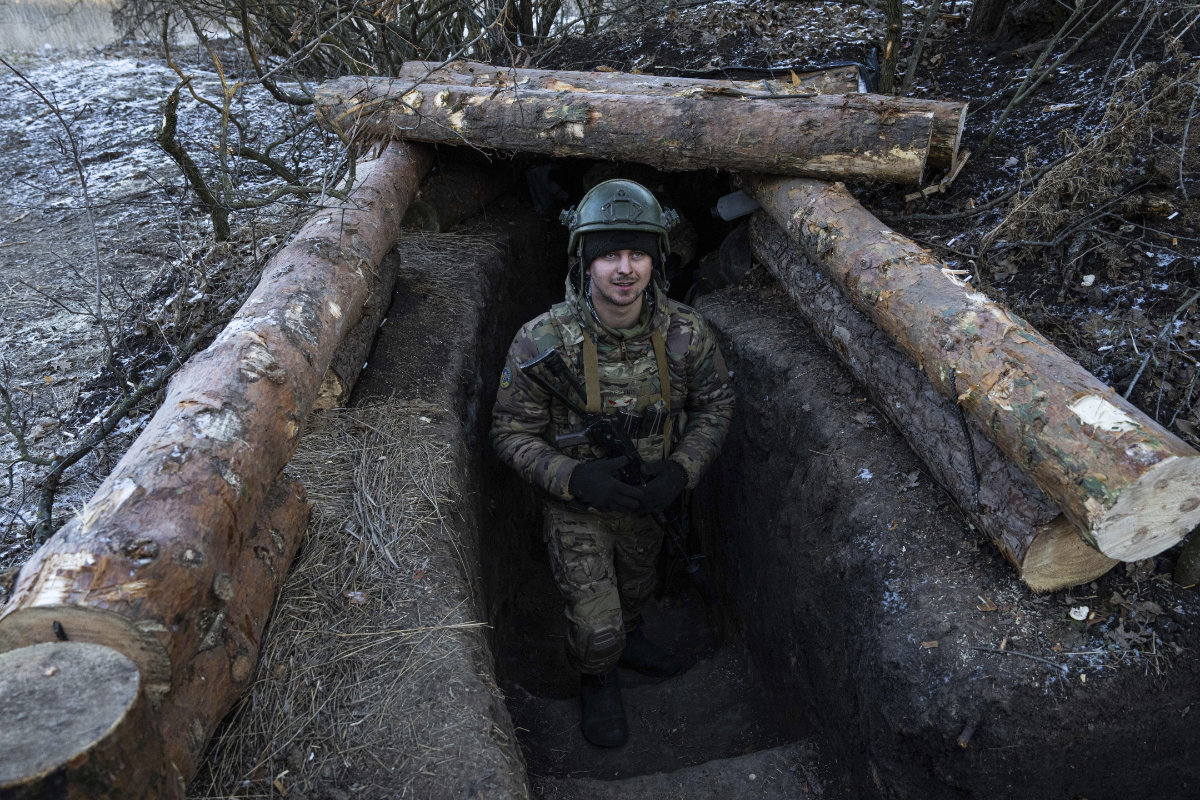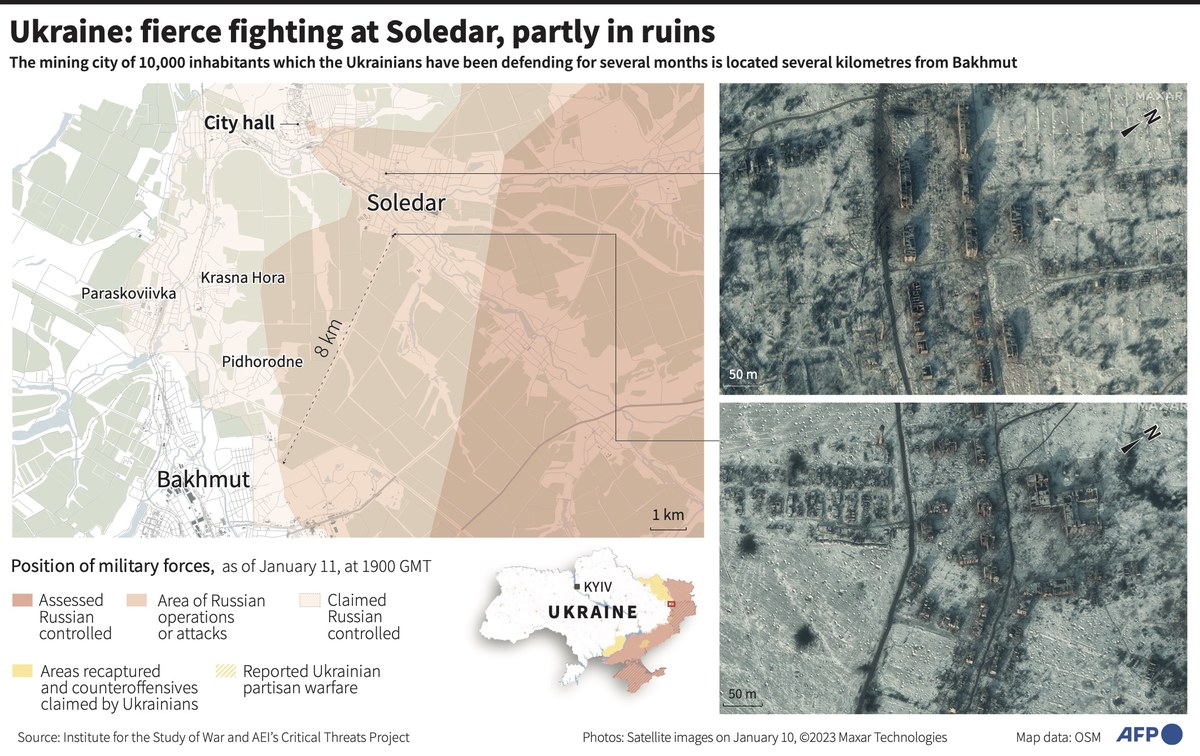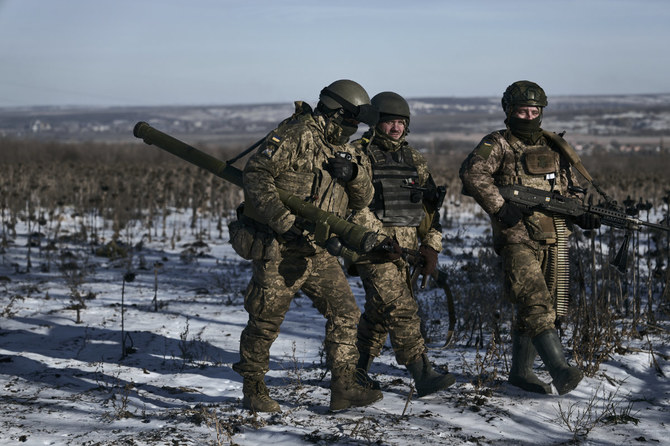KYIV/NEAR SOLEDAR, Ukraine: Ukraine said its troops were holding out against pro-Moscow forces in the eastern salt mining town of Soledar as more than 500 civilians including children were trapped there.
In a video address, Ukrainian President Volodymyr Zelensky on Thursday thanked two units in Soledar that he said “are holding their positions and inflicting significant losses on the enemy.” He did not give more details.
Zelensky said he and senior Ukrainian commanders analyzed the need for reinforcements in Soledar and nearby towns in the eastern industrial area known as the Donbas and next steps for the coming days.
Russia’s ultra-nationalist contract militia Wagner Group, run by an ally of President Vladimir Putin, claimed to have taken Soledar after intense fighting that it said left the town strewn with Ukrainian dead.
Moscow however, has held off officially proclaiming a victory, which would be its first significant gain in six months.
“At the moment, there are still some small pockets of resistance in Soledar,” Andrei Bayevsky, a Russian-installed local politician, said in an online broadcast.

A Ukrainian serviceman man his position at the frontline near Bakhmut, Donetsk region on Jan. 11, 2023. (AP Photo/Evgeniy Maloletka)
Reuters was unable to independently verify the situation.
Donetsk governor Pavlo Kyrylenko told Ukrainian state TV that 559 civilians remained in Soledar, including 15 children, and could not be evacuated from the community that had a pre-war population of about 10,000.
Deserted streets
Drone footage obtained by Reuters of a medical evacuation from Soledar by Ukrainian soldiers showed deserted streets where just a few ruined buildings remained standing, amid blasted trees and smoldering rubble.
A 24-year-old Ukrainian soldier, positioned outside Soledar, said: “The situation is difficult but stable. We’re holding back the enemy ... we’re fighting back.”
US officials questioned the importance of a Russian victory in Soledar even if that were true.
Soledar lies less than 10 km (6 miles) northeast of the city of Bakhmut where fighting has raged for months in one of the war’s bloodiest battles — dubbed the “meat grinder.”
“Even if both Bakhmut and Soledar fall to the Russians, it’s not going to have a strategic impact on the war itself,” US National Security Council spokesman John Kirby told reporters at the White House, “and it certainly isn’t going to stop the Ukrainians or slow them down.”
If Russia captured Soledar, it would likely use that position to intensify its assault on Bakhmut. Soledar is also home to cavernous salt mines, which could be a commercially lucrative asset.

Leadership change
Kremlin-watchers were examining Russia’s latest switch of battlefield leadership, a day after Valery Gerasimov, chief of the military’s general staff, was unexpectedly given direct command of the invasion.
The previous commander of three months’ standing, Army General Sergei Surovikin, was effectively demoted to become one of Gerasimov’s three deputies.
Moscow explained the decision — at least the third abrupt change of top commander in the 11-month conflict — as a response to the campaign’s growing importance.
Across Ukraine, the front lines have barely budged since Russia’s last big retreat in the south two months ago. Kyiv hopes heavy armor from Western allies will allow it to resume advances.
Western countries have started to offer Kyiv advanced weaponry like the sophisticated US Patriot missile system. The United States, Germany and France last week pledged armored fighting vehicles and Ukraine’s latest requests have focused on battle tanks.
Polish President Andrzej Duda promised Ukraine 14 German-made Leopard battle tanks. Zelensky told Polish state-run broadcaster TVP Info that this could pave the way for other countries to do the same. Britain is considering sending tanks.
Putin launched the invasion on Feb. 24, saying Kyiv’s ties with the West threatened Russia’s security. Ukraine and its allies call it an unprovoked war to seize territory.


























